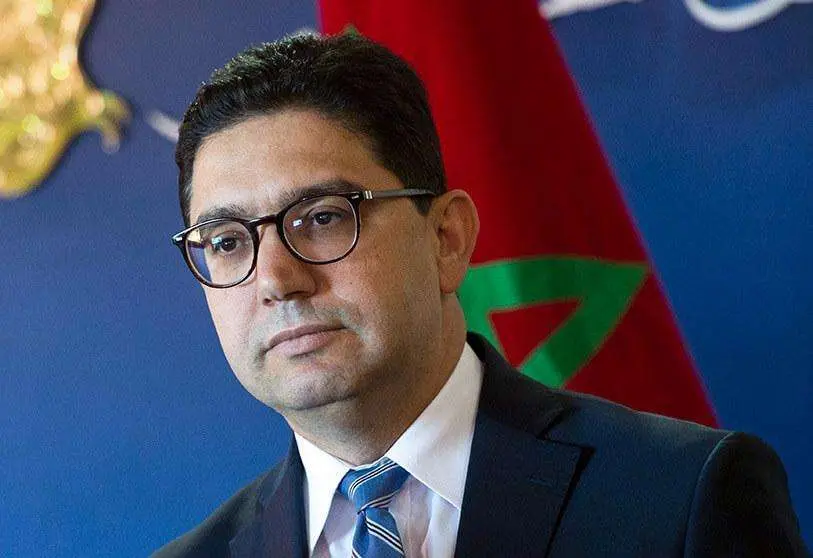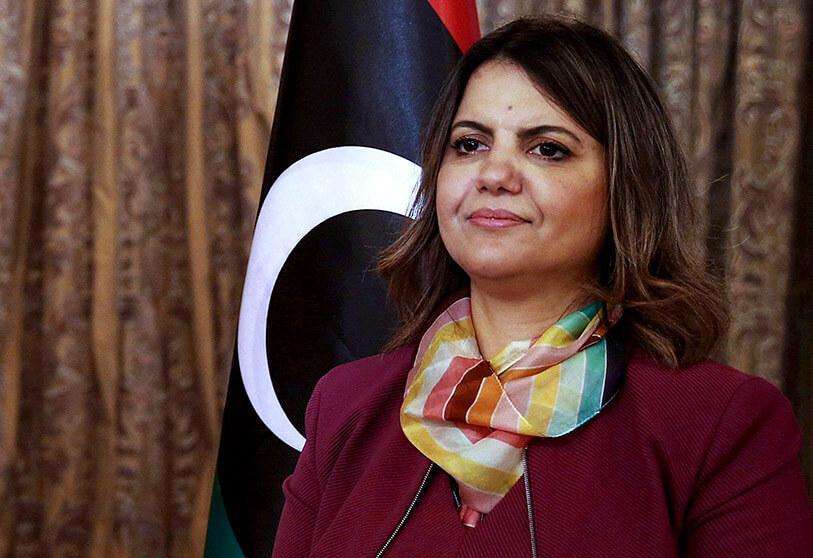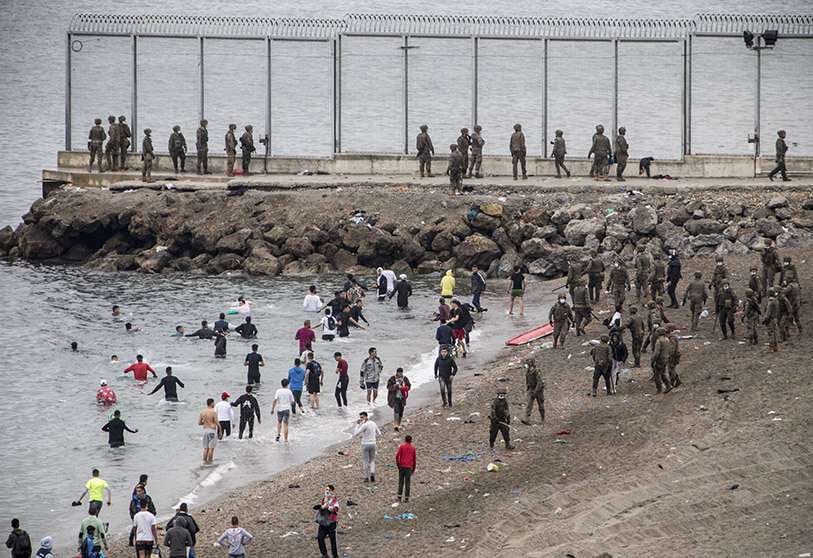Marruecos considera “contraproducente” cualquier intento de desviar el debate ante la crisis con España

Nasser Bourita, Morocco's Minister of Foreign Affairs, branded as "counterproductive" and harmful any desire to divert attention from the debate generated by the current diplomatic problem between the Alawite kingdom and Spain.
The Moroccan diplomat made this point at a joint press conference in Rabat with the Foreign Minister of Libya's Transitional Government of National Unity, Najla Mangoush. "Morocco, which considers the crisis to be bilateral and political with Spain, is satisfied with its relations with the European Union in all areas", said Nasser Bourita during the public appearance, in a clear allusion to the latest pronouncement made in the European Parliament, through a community resolution "on the violation of the United Nations Convention on the Rights of the Child and the use of minors by the Moroccan authorities in the migratory crisis in Ceuta". A declaration by the European institution that was considered controversial by Moroccan diplomatic sources and whose text underwent many variations and required a great deal of negotiation before a final vote on it finally counted with less than 400 votes.
In its resolution, Parliament deplored "the involvement of children, unaccompanied minors and families in the mass crossing of the border from Morocco to the Spanish city of Ceuta, clearly putting their lives and safety at risk".
The migration crisis in Ceuta, which occurred a few weeks ago with the arrival of thousands of Moroccans in the Spanish autonomous city, coincided with the diplomatic crisis between Spain and Morocco that arose from the hospitalisation of the head of the Polisario Front, Brahim Ghali, in Spain to be treated for respiratory problems, a situation that provoked protests from the North African country, which considered that it was not properly informed of what had happened and that it did not receive the expected cooperation from a nation considered an ally, such as neighbouring Spain.

Morocco considered the European Parliament's resolution to be out of keeping with the Kingdom's work in the fight against illegal immigration, as indicated by Nasser Bourita, who pointed out that Morocco's efforts in this area are known and valued, even by the European institutions themselves.
"This resolution is part of an instrumentalisation of the European institutions and of the European Parliament in particular in relation to an issue that is not the responsibility of the EP itself", he added. Morocco had already rejected in the last hours what it considers a Europeanisation of a crisis that is only bilateral. Moreover, a previous official communiqué from the Ministry of Foreign Affairs itself stressed that the EP resolution will not contribute to the solution of the dispute between Morocco and Spain.
"If the title of the resolution refers to the UN Convention on the Rights of the Child. The first question that arises is: who gave the European Parliament the mandate to supervise the UN conventions? Since when has the European Parliament been the guardian of the implementation by the Member States of a UN convention? asked Nasser Bourita, as reported by media such as Hespress and the EFE agency.
The Moroccan Foreign Minister also expressed concern about the poor reception and accommodation conditions in the overcrowded temporary detention centres.

Nasser Bourita wanted to go to what Morocco considers to be the root of the problem. As long as the situation is not resolved, the crisis will continue and any attempt to divert the debate will be useless and will have no impact on Morocco's perception of this crisis, the minister said.
The resolution decreed in the European Parliament does not alter the substance of the problem with Spain, "which had as its genesis its hostile attitude and actions towards a cause sacred to Morocco and Moroccans", Bourita said, referring to Rabat's claim to sovereignty over Western Sahara. Beyond the diplomatic conflict generated by Brahim Ghali's presence in Spain, Morocco has been demanding more support from Spain on the Saharawi issue.
The formula of autonomy for the Sahara region under Moroccan sovereignty defended by the Alaouite kingdom has been gaining international support, with the United States even recognising the Moroccan sovereignty of the Sahara, and countries such as the US giant itself and the United Arab Emirates announcing the opening of their consulates in strategic enclaves in the area such as Dakhla and El Aaiún. All this is in contrast to the Polisario Front's thesis of a referendum on independence for the Sahrawi population, which has little international support.









